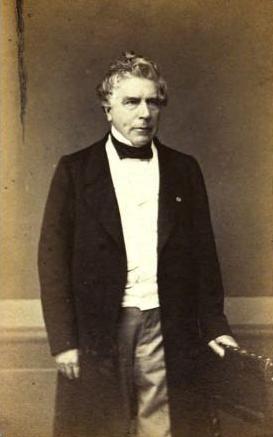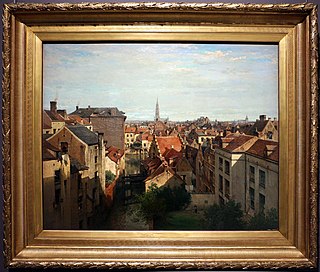
The International Federation of Journalists (IFJ) is the largest global union federation of journalists' trade unions in the world. It represents more than 600,000 media workers from 187 organisations in 146 countries.

Paul Marie Ghislain Otlet was a Belgian author, entrepreneur, lawyer and peace activist; predicting the arrival of the internet before World War II, he is among those considered to be the father of information science, a field he called "documentation". Otlet created the Universal Decimal Classification, which would later become a faceted classification. Otlet was responsible for the development of an early information retrieval tool, the "Repertoire Bibliographique Universel" (RBU) which utilized 3x5 inch index cards, used commonly in library catalogs around the world. Otlet wrote numerous essays on how to collect and organize the world's knowledge, culminating in two books, the Traité de Documentation (1934) and Monde: Essai d'universalisme (1935).

The CICM Missionaries, officially known as the Congregation of the Immaculate Heart of Mary and often abbreviated as C.I.C.M, is a Catholic clerical religious congregation of Pontifical Right for men established in 1862 by the Belgian Catholic priest Theophile Verbist (1823–1868). Its members add the post-nominal letters C.I.C.M. to their names to indicate membership in the congregation.
The Anti-Authoritarian International was an international workers' organization formed in 1872 after the split in the First International between the anarchists and the Marxists. This followed the 'expulsions' of Mikhail Bakunin and James Guillaume from the First International at the Hague Congress. It attracted some affiliates of the First International, repudiated the Hague resolutions, and adopted a Bakuninist programme, and lasted until 1877.

The International Association of Wagner Societies is an affiliation of Wagner societies that promotes interest and research into the works of Richard Wagner, raises funds for scholarships for young music students, singers, and instrumentalists, and supports the annual Bayreuth Festival. It also sponsors symposia, holds singing competitions for Wagnerian voices, and issues awards for stage direction and stagings of Wagner's operas. The association is a nonprofit organization, governed by a Presidium headed by a President, who are elected together quinquennially.

Charles Latour Rogier was a Belgian liberal statesman and a leader in the Belgian Revolution of 1830. He served as the prime minister of Belgium on two occasions: from 1847 to 1852, and again from 1857 to 1868.

The Ligue internationale de la paix was created after a public opinion campaign against a war between the Second French Empire and the Kingdom of Prussia over Luxembourg. The Luxembourg crisis was peacefully resolved in 1867 by the Treaty of London but in 1870 the Franco-Prussian War could not be prevented so the league dissolved and refounded as the 'Société française pour l'arbitrage entre nations' in the same year.
The International Federation for Information and Documentation (FID) was an international organization that was created to promote universal access to all recorded knowledge through the creation of an international classification system. FID stands for the original French Fédération internationale de documentation.
The Catholic Party was a Belgian political party established in 1869 as the Confessional Catholic Party.
The European Jewish Congress (EJC) was founded in 1986. It is based in Brussels, with offices in Paris, Strasbourg, Berlin and Budapest. It is a representative body of democratically elected European Jewish communities throughout Europe.
SIGNIS (official name: World Catholic Association for Communication) is a Roman Catholic ecclesial movement of the Faithful for professionals in the communication media, including press, radio, television, cinema, video, media education, internet, and new technology. It is a non-profit organization with representation from over 100 countries. It was formed in November 2001 by the merger of International Catholic Organization for Cinema and Audiovisual (OCIC) and International Catholic Association for Radio and Television (Unda). At its World Congress in Quebec in 2017, SIGNIS welcomed also former member organisations of the International Catholic Union of the Press (UCIP).

Guillaume-Hippolyte Van Volxem was a Belgian lawyer, liberal politician and mayor of the City of Brussels.

International Trail Running Association (ITRA) is the governing body for trail running. It was formed in 2013, emerging from the 1st International Trail Running Conference held in 2012. Trail running was first recognised by the International Association of Athletics Federations in 2015 as a discipline of athletics. ITRA has, among other things, developed a points system for ranking the difficulty of specific trail routes and tracking the performance of runners across races.

Antoine Édouard Ducpétiaux was a Belgian journalist and social reformer.

The Second International, also called the Socialist International, was a political international of socialist and labour parties and trade unions which existed from 1889 to 1916. It included representatives from most of Europe's major working-class organizations, though it was dominated by the Social Democratic Party of Germany. The organization continued the work of the First International, which had been dissolved in 1876, and was ideologically dominated by Marxism, although other viewpoints were represented, most notably anarchism until anarchists were expelled in 1893. Its key thinkers included Friedrich Engels, Karl Kautsky, and Georgi Plekhanov, with the ideas of Vladimir Lenin and Rosa Luxemburg also being influential.

The International Workingmen's Association, often called the First International, was a political international which aimed at uniting a variety of different left-wing socialist, social democratic, communist, and anarchist groups and trade unions that were based on the working class and class struggle. It was founded in 1864 in a workmen's meeting held in St. Martin's Hall, London. Its first congress was held in 1866 in Geneva.

Events in the year 1868 in Belgium.
The Malines Congresses were a series of Catholic Congresses held in Mechelen, Belgium, with the purpose of bringing together Catholics with leading roles in all walks of life, on the model of the German Katholikentage. The first three, held in 1863, 1864 and 1867, had considerable cultural, social and political impact. They lay at the foundation of the future development of a Catholic Party in Belgian politics, as well as a nascent Social Catholicism. The first congress saw the establishment of the Guild of Saint Thomas and Saint Luke, which shaped Belgian Gothic Revival architecture and art education. The main organiser of the first three congresses was Édouard Ducpétiaux, who died in 1868. They were hosted in Mechelen by the archbishop, Engelbert Sterckx, who died in December 1867, although much of the practical management fell to Isidore-Joseph du Rousseaux, a teacher at the junior seminary where many of the sessions were held.

The Spanish Regional Federation of the International Workingmen's Association, known by its Spanish abbreviation FRE-AIT, was the Spanish chapter of the socialist working class organization commonly known today as the First International. The FRE-AIT was active between 1870 and 1881 and was influential not only in the labour movement of Spain, but also in the emerging global anarchist school of thought.











